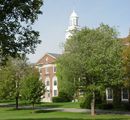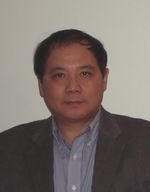Nanotechnology: Emerging analytical/bioanalytical & medical applications
The goal of this symposium is to provide a forum for scientific and technical exchange, to advance the research of nanotechnology in analytical, bioanalytical, and medical applications. In view of the rapid development of nanotechnology in these fields, there is a need to create interdisciplinary forums to discuss the emerging applications in a much broader connection between all aspects of analytical, bioanalytical and medical research. A common theme for the emerging interests in nanotechnology is the exploration of the unique electrical, optical, l properties of materials at nanoscale. In addition to discussing the latest experimental and theoretical approaches to probing various nanoscale interfacial phenomena, the symposium will also address the challenges and opportunities.
The proposed topics include, but will not be limited to development of nanostructured or nanocomposite materials for constructing sensors, biosensors, medical diagnostics, improvement of chemical and biological detection by manipulating nanoscale size, shape, composition, and interfacial properties, synthesis of multifunctional nanoparticles and nanostructures for enhancement of sensing or detection performance, development of techniques or methodologies for characterizing the nanostructured materials, and experimental and theoretical investigations of nanoscale phenomena responsible for new or improved analytical, bioanalytical, and medical capabilities.
Session organizer
Dr. Zhong is a professor of Analytical and Materials Chemistry, Electrochemistry, Catalysis, and Nanotechnology at the State University of New York at Binghamton.

